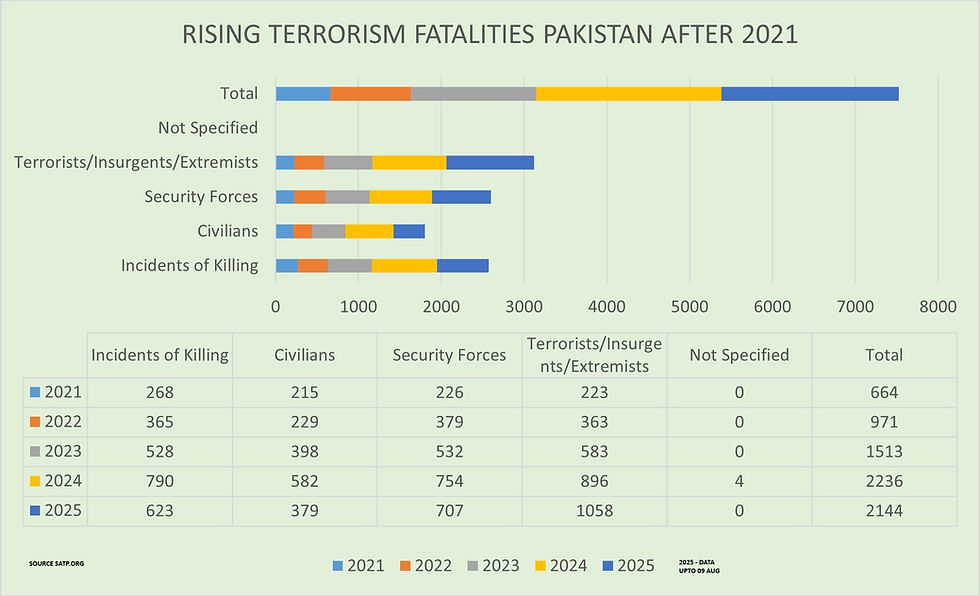Supreme Court Rulings Critical for Imran Khan's Survival
- Security Risks Research
- Mar 22, 2022
- 3 min read

Image Courtesy Wikipedia
The Supreme Court of Pakistan is now actively involved in adjudicating on the ongoing political contestation between the ruling Pakistan Tehreek-e-Insaaf (PTI) and the joint opposition led by the Pakistan Democratic Movement (PDM) and other parties including the Pakistan People’s Party.
Despite representations by the Supreme Court Bar Association, a powerful body of lawyers CJP Bandial has said that the Supreme Court of Pakistan wants to protect everybody’s voting rights regarding the Pakistani government’s decision that prevents the Pakistan Tehreek-i-Insaf (PTI) lawmakers to vote in the no-confidence motion but is not willing to step in just yet and wants to allow the political developments to attain its own trajectory rather than restricting freedom.
The Court however will have to rule over Article 63 A which is crucial as it defines whether the dissenting vote of a parliamentarian which is against the whip issued by the Party can be counted or not.
With about 14 to 30 PTI lawmakers dissenting at present and likely to vote against the NCM, the issue has assumed much traction. A full bench of the Supreme Court will consider the petition that has been filed by the PTI for consideration of disqualification of the dissenting votes at the time of counting by the Speaker of the National Assmebly.
NCM Voting
The 41st Session of the current National Assembly was summoned based on the requisition under Article 54 of the Constitution by the joint opposition along with the submission of the no-confidence motion (NCM) against the prime minister on March 08.
A session of the National Assembly is requisitioned by the opposition based on Article 54 with signatures of at least 25 per cent of the members. The application was made on March 08 and the speaker has a maximum of 14 days to summon a session.
Which implied that the session had to be called by March 22, but the Speaker has in the notification issued from the NA Secretariat which is seen with Dawn.com stated that as the motion adopted by the National Assembly on January 21 the National Assembly was to be provided for the 48th session of the Organisation of Islamic Countries (OIC) Council of Foreign Ministers on March 22 and 23.
While the opposition is concerned about the delay and is planning to take up the issue, the Speaker seems to have come up with a reasonable response for the delay.
What happens next?
Suppose the prime minister survives the vote of confidence. In that case, PM Khan will emerge from the crisis politically stronger and will also be on the roll for the following year's National Assembly elections.
If he falls, there are multiple options, a government led by the opposition, the PML N, as it is the second-largest party in the National Assembly coalition with the opposition parties. The question of who will be the prime minister in such a scenario may lead to consideration of Mr Shahid Khaqan Abbasi who is close to the PML N Supremo Nawaz Sharif, his brother while leader of the opposition in the NA and President of the Party Shahbaz Sharif may also be in the running. But Sharif's family internal politics may be the deciding factor.
Other options are early elections and technocrat led government for the interim. This may be a preferred option for political parties as no Party will like to be in power given the anti-incumbency factor due to massive economic problems with the IMF seeking answers on recent subsidies provided by the Imran Khan government.



Comments